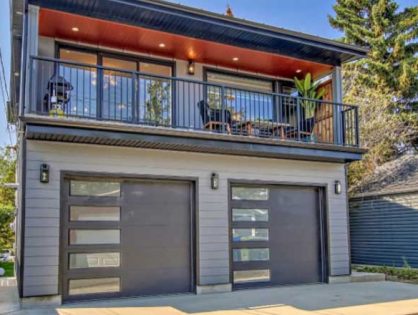
This is a topic that often confuses people. Although it is a fairly simple question, making the choice often seems complex. The goal of this article is to help you make the best decision for your circumstances. The first thing to understand is that neither fixed rate mortgages nor variable rate mortgages are “better”. Each one has advantages and disadvantages. The one that is better for you depends on your current situation, your plans and your comfort level with managing money.
Fixed rate mortgage
A fixed rate mortgage simply means a mortgage where the rate that you are charged remains the same over the term (until the mortgage comes due for renegotiation). The monthly payments remain the same, too, so you know exactly what you are getting. This is the traditional mortgage, where the only thing that changes over time is the proportion of your payment that is applied to principle and the proportion that is applied to interest. Over time , more of your payments are applied to the principle and less to interest, following a fixed amortization table, which you might have seen. There are some pretty strong advantages to getting a fixed mortgage. One of the big advantages is predictability. You know exactly how much you will be paying each month. You can budget in advance. If you previously paid rent, not much will change in this respect, except that it will be you earning the equity in the building instead of a landlord. If your situation is predictable, and you don’t expect major changes, you might like this. Some people enjoy tweaking their finances; other people get stressed just thinking about them. With a fixed rate mortgage, the rate is set once and then you can leave it for the remainder of the term – “set it and forget it”. If knowing that your finances are on autopilot and not having to think about them reduces your anxiety level, a fixed rate mortgage can add years to your life (and those years would be less stressful). There is a disadvantage to fixed rate mortgages. The interest rate over time is higher on average than a flexible rate mortgage. Here is why. Interest rates fluctuate. If you pay attention to the news, you will hear about the Bank of Canada’s prevailing rate on a daily basis. Your lender is constantly moving money around, lending and borrowing it, and if directly affected by the prevailing interest rates. If you have a loan (your mortgage) locked in at a fixed rate for five years, your lender will want to make sure that it is locked in at a rate where they will make a profit, not suffer a loss. So they have to charge more. Your lender takes a risk for you, and you pay a higher interest rate to buy stability.
Variable rate mortgage
A variable rate mortgage is one whose rate varies over time, usually mirroring changes in the bank rate set by the major banks based on the “prime rate” set by the Bank of Canada. The rate will typically be expressed as a number of points above the prime rate. The main advantage of a variable rate mortgage is that over time it will cost you less. Because the lender’s profit is predictable, they do not have to hedge their bets and increase your rate. You bear all the risk and reward related to fluctuating interest rates; the lender just has to mark it up to earn a profit. So you get the best rate possible. The biggest advantage of a variable interest rate is if interest rates go significantly down. Your rate will go down accordingly, saving you thousands of dollars over a fixed rate mortgage. There are a couple disadvantages with a variable rate mortgage. As much as you can save huge amounts of money when interest rates dip, you can also lose huge amounts when they climb. Notwithstanding the fact that on average home owners save money with a variable rate mortgage, there is no telling that you will be one of them. So you are gambling to some degree – odds in your favour, but still a bit of a gamble. If you get easily stressed about money, you might find that taking the risk on a variable rate mortgage is not worth the price. It might be worth it to you to pay for peace of mind.
To sum it up…
In a world of fluctuating interest rates, the lender bears the risk with a fixed rate mortgage, but on average you stand to pay more. You bear the risk with a variable rate mortgage; you will probably pay less, but it is possible that you will pay more. If you need help selecting a mortgage, that’s what a mortgage broker is there for – at NO cost to you. Just complete the simple online application at www.alberta-mortgages.com.




